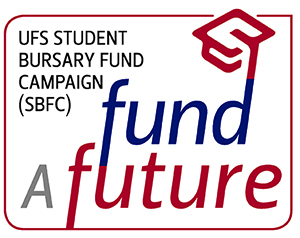Latest News Archive
Please select Category, Year, and then Month to display items
10 March 2022
|
Story Anthony Mthembu
|
Photo Unsplash
 The No Student Hungry team gearing up to start distributing food parcels to the selected students.
The No Student Hungry team gearing up to start distributing food parcels to the selected students.
The UFS is one of the many institutions of higher learning where food insecurity is an active issue. However, the
No Student Hungry Programme is one of the initiatives launched at the university to assist in fighting food insecurity at the institution.
The purpose of the programme
Since its inception in 2011, the initiative has assisted many students in acquiring a healthy meal. Additionally, the Food Environment Office also hands out food packages, so that students can continue to achieve academically. “We are trying to develop a healthy environment for students and make it easier for them to have a nice and healthy meal,” stated Annelize Visagie, who heads the Food Environment Office at the UFS. The Food Environment programme is spread out on all three campuses, each with its own facilitators. Furthermore, the programme mainly caters for students who are not funded by the National Student Financial Aid Scheme (NSFAS) but who are excelling academically. The abovementioned students apply for assistance online, and a list is then drawn up of students who receive assistance for the year.
Alternative solutions to keep the initiative running
On the Bloemfontein Campus, the No Student Hungry Programme will be catering for 200 students in the 2022 academic year, assisting them with a daily nutritious meal. Additional food parcels are also handed out to provide further assistance. “We give food parcels to the students on the list every Tuesday and Thursday at the Thakaneng Bridge,” Visagie highlighted. However, she argues that catering for the student population through this programme can be a challenge, as the demand for assistance is growing rapidly and the ability to assist is limited. The programme relies on partnerships and sponsors to assist the student body. In fact, the coordinators of the programme currently have a memorandum of understanding with Tiger Brands according to which they deliver around 100 food parcels for distribution.
In addition, the coordinators have put in place alternative measures to ensure that they can provide more food to students. “The
Kovsie Act Office, in partnership with the
Department of Sustainable Food Systems and Development, has started a food garden where healthy and nutritious produce are grown, in order to add value to the distribution,” she indicated. Although the programme can only assist to a point, students who are in desperate need of assistance are never turned away. In fact, the
Social Support Unit at Thakaneng Bridge usually assists students with food vouchers for a maximum of four days.
A commitment to teaching healthy eating habits
The programme is not only committed to curbing food insecurity, but also to ensuring that students have a healthy and balanced diet. As such, a booklet is being issued by the
Department of Nutrition and Dietetics in collaboration with the Department of Sustainable Food Systems and Development, which contains ways in which students can make a healthy meal using some of the ingredients offered in the food parcels.
“We want to teach students how to eat healthy in the cheapest way, because they don’t have a lot of money to buy expensive food products,” Visagie argued.
Student Bursary Fund Campaign launched: #FundAFuture and make a difference
2016-04-25

“The single most important investment any country can make is in its people.” – National Development Plan 2030
|
Video
Student Bursary Fund Campaign booklet (pdf)
Donate
South Africa’s National Development Plan states that universities play a key role in developing our nation. The cost of higher education, though, hinders most of our youth from transcending their circumstances.
In order to help increase the amount of lives transformed through higher education, the University of the Free State (UFS) launched the nation-wide Student Bursary Fund Campaign on Thursday 3 March 2016 in Cape Town.
“I believe the best way to break the cycle of poverty in South African families is to ensure that talented first-generation students gain access to high-quality university degree training,” says Prof Jonathan Jansen, Vice-Chancellor and Rector of the UFS.
Student Bursary Fund Campaign
The campaign aims to raise R100 m to fund talented, deserving students who do not have the financial means to obtain a university degree.
“Championing the Student Bursary Fund Campaign,” Prof Jansen says,“is not only a professional quest, but a deeply personal one for me. The university and I cannot do this alone, though. We need your support and generosity to change the landscape of our youth’s future.”
Your support is crucial
Can your contribution make a difference in a country – a world – filled with need? The answer resonates in the life of each student that has obtained a degree by means of funding.
The impact of your financial support reaches far beyond its monetary value. It pulls families from poverty. It sends forth experts and visionaries into the world. It sets in motion a culture of giving.
It irrevocably changes the futures of individuals, of communities, and ultimately of our country.
Contributions
Each contribution will bring us closer to our goal of R100 m.
Contributions can be deposited into the following account:
ABSA
Account number: 157 085 0721
Branch code: 632 005
Branch name: Business Bank - Bloemfontein
Swift code: ABSAZAJJ
For enquiries or further information:
T: +27(0)51 401 3966 | E: FundAFuture@ufs.ac.za | www.ufs.ac.za